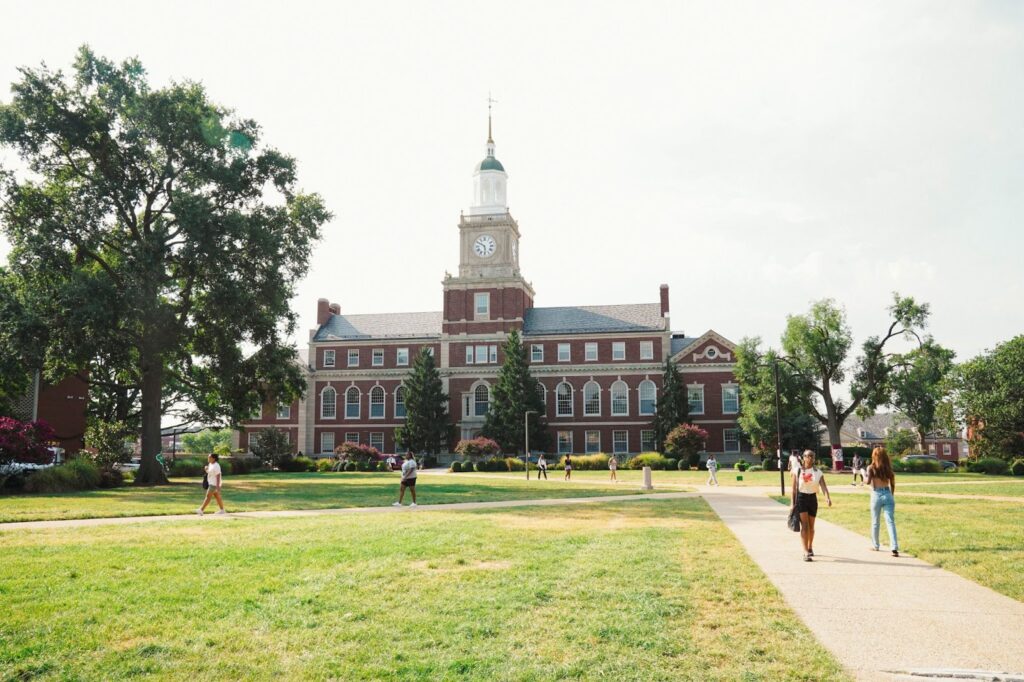
The Biden-Harris administration announced an additional $1.3 billion in funding for HBCUs at a White House press conference last week, bringing the total support to more than $17 billion.
This financial commitment aims to strengthen HBCUs by improving infrastructure, expanding academic programs and ensuring long-term economic stability, the White House says.
Dietra Trent, the executive director of the White House Initiative on HBCUs, highlighted the administration’s focus on equity in higher education.
“This new investment, part of a total surpassing $17 billion since the start of the Biden-Harris administration, primarily targets need-based grants to support students, particularly those eligible for Pell Grants,” she said.
Trent noted that a large majority of the funding is directed toward ensuring that students have the resources they need to complete their college education.
She emphasized that these grants “are recurring in that as long as the student is in need-based aid…it is recurring until the student completes college.”
Trent elaborated on the importance of these grants, noting that they have been a longstanding resource for schools, providing essential support to students from low-income families.
“You have to apply for them through your FAFSA…once you submit your FAFSA form, then it is determined whether or not you’re eligible for these grants,” she said. “If you are, then the federal government will send that portion of your tuition to the school.”
Trent highlighted a recent increase in the Pell Grant.
“I’d like to mention also that this administration has so far increased the Pell Grant by $900, the maximum award, so students would see an additional $900 in this administration towards their tuition,” she said.
Stephen Benjamin, assistant to the president and director of public engagement, stated that this increase is significant, as it directly impacts the affordability of higher education for many students, enabling them to cover more of their tuition costs and raise the quality of education in these specific institutions.
“Through these efforts, the Biden-Harris administration aims to alleviate financial burdens and promote equitable access to education for all students,” a goal outlined in their administration’s official communications.
In addition to direct student support, the administration is allocating $188 million in competitive grants to HBCUs through the Department of Education, according to The White House press conference fact sheet.
The fact sheet continues to highlight that these grants are designed to enhance research and development (R&D) capacity building at these institutions, fostering innovation and strengthening academic programs.
Rodericka Applewhaite, director of Black media at the White House, clarified that there is an application process in place. She noted that institutions can visit ed.gov to find detailed information about the eligibility criteria for receiving these grants.
“HBCUs will make those applications directly to the Department of Education, and then they will deliberate from there and then disseminate that funding,” Applewhaite said.
She clarified that the process allows for direct engagement for application status between schools and the department. In addition, this process is designed to ensure fairness.
“I do not think the Department of Education dictates what the criteria are as far as what deliberation is. But it is a holistic application process which includes determining which schools need the funding more than others,” she said.
During the press conference, Benjamin shared that the administration aims to empower HBCUs to compete more effectively for federal research dollars and expand their contributions to various fields by providing targeted funding.
“This investment supports the growth of HBCUs and enhances their role in advancing knowledge and addressing critical societal challenges,” he said during the press conference.
Applewhaite discussed the future benefits of these initiatives.
“This helps further the point that we’ve been trying to drive throughout our four years of the Biden administration that HBCUs are incubators for the next generation of Black leaders,” Applewhaite said. “They help more than five times as many students move from the bottom 40 percent of income earners to the top 60 percent of U.S. households.”
This upward mobility is paired with the role HBCUs play in providing educational opportunities to a diverse range of students.
“HBCUs provide access to twice as many low and middle income Pell Grant students as non-HBCUs,” she said. “They produce 40 percent of Black engineers, 50 percent of Black teachers, 70 percent of Black doctors, and 80 percent of Black judges, including 100 percent of Black vice presidents.
Sara Abdelgadir, a sophomore international business major from Montgomery County, Maryland, emphasized the importance of this funding for HBCUs.
“It’s extremely necessary to provide support for underfunded communities like HBCUs,” she said.
Abdelgadir added reflecting on her own experience.
“I chose Howard because I believed it would benefit me, but I often feel I lack the necessary funding and support to achieve my educational goals,” she said. “This funding is essential, and we need to continue supporting these underappreciated institutions.”
Mark Sigman, a sophomore architectural major from Raleigh, North Carolina, expressed his concerns regarding the impact of current funding.
“While the grants are helpful, they don’t fully alleviate the burden. Many students still have to take out massive loans, and the Pell Grant often only covers books and supplies,” Sigman said.
He emphasized that these limitations highlight the need for broader solutions.
“We need a system that accounts for the fact that $40,000 is still a lot of money, and finding ways to widen eligibility for Pell Grants could help more students access opportunities at places like Howard,” he said.
During remarks at the 2024 National HBCU Week Conference in Philadelphia, President Biden reaffirmed his commitment to these institutions.
“We’ve made incredible progress because Kamala and I kept our commitment to you to ensure that all our students and all of our colleges and universities should be able to succeed,” he said.
To further this goal, he added, “That’s why I signed an executive order reestablishing the White House Initiative on HBCUs after my predecessor allowed it to lapse.”
Copy edited by Camiryn Stepteau









